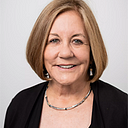Member-only story
The Evolution of the Hippocratic Oath and Medical Ethics
By: Magdalyn Fiore
The oath that physicians take has changed a lot since the original 5th century BC Hippocratic Oath. What do these changes say about medical ethics today?
“Do no harm” is the phrase people most associate with the Hippocratic Oath, but nowhere does the document say these exact words (“never do harm” is what it actually says [1]).
The Hippocratic Oath is the vow medical students take during their white coat ceremony at the beginning of medical training and again at graduation, proclaiming their commitment to medical ethics. The original oath has been modified multiple times in medicine’s history, but three versions are most commonly recited today. They are:
- The original 5th-century-B.C. Oath of Hippocrates provided the first ethical guideline for physicians in ancient Greece.
- The Declaration of Geneva was written in 1948 (amended numerous times, most recently in 2017) in response to the grotesquely inhumane treatment of individuals in Nazi Germany
- The Modern Physician’s Oath is a 1964 revision by Dr. Louis Lasagna.
